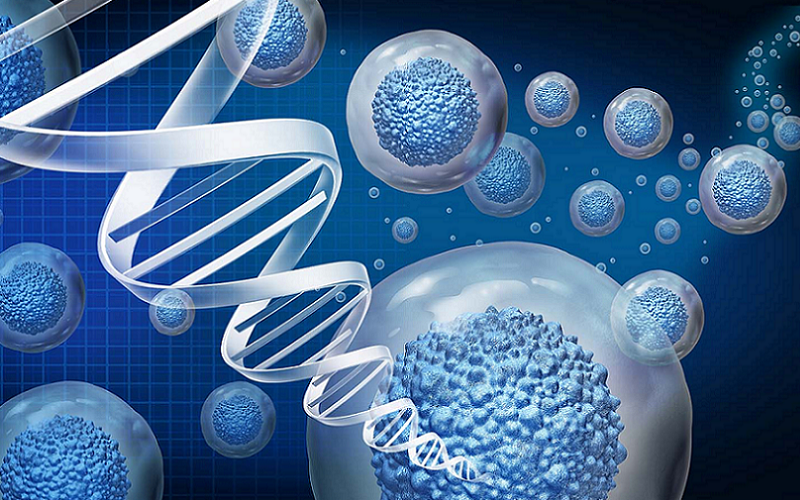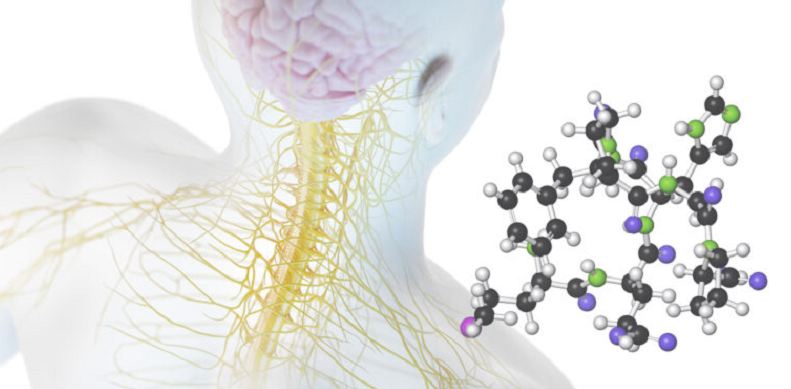
In the vast and intricate landscape of our brain, numerous players come together to determine our cognitive function, emotions, and overall mental health. Among them, peptide hormones stand out as unsung heroes — chemical messengers that, while often overshadowed by neurotransmitters, play pivotal roles in brain processes. From the bonds we form with our loved ones, to the clarity of our memories, and even the moods we experience, these hormones have a say in it all.
Contents
- Basics of Peptide Hormones
- Key Peptide Hormones Influencing Brain Health
- The Interplay of Peptide Hormones and Neurotransmitters
- The Link Between Peptide Hormones and Cognitive Disorders
- References
Basics of Peptide Hormones
In our quest to understand the nuanced workings of the brain, it’s essential to start with the basics. Peptide hormones, despite their critical roles, often remain a lesser-known entity among the general populace.
Definition and Characteristics of Peptide Hormones
Peptide hormones are essentially short chains of amino acids that act as signaling molecules in our body. Unlike the structurally complex proteins, peptide hormones are smaller and have specific functions, especially in sending messages between cells. These messages could range from managing hunger to controlling emotional responses.
Difference Between Peptide Hormones and Steroid Hormones
At the heart of endocrinology lies the distinction between peptide and steroid hormones. While both serve as messengers in the body, their origins and actions differ significantly. Peptide hormones, as mentioned earlier, are composed of amino acids and are soluble in water. They usually act on the surface of target cells by binding to specific receptors. Steroid hormones, on the other hand, are derived from cholesterol and are lipid-soluble. This means they can easily pass through the cell membrane and act on receptors inside the cell, often directly influencing DNA transcription.
How Peptide Hormones Are Produced in the Body
The production journey of peptide hormones begins in the endocrine glands. Cells in these glands synthesize precursor molecules that get cleaved and modified to form the active peptide hormone. Once released into the bloodstream, they travel to target tissues or organs where they bind to specific receptors and exert their effects.
Peptide Hormone Impact on the Nervous System
Understanding the world of peptide hormones wouldn’t be complete without delving into their interactions with our nervous system. The interplay is both fascinating and intricate, reflecting the complexity of our bodily processes [1].
Connection Between the Endocrine and Nervous System
The endocrine and nervous systems are the body’s primary communication networks, with peptide hormones serving as a bridge between them. Neurotransmitters, the messengers of the nervous system, can stimulate the release of certain peptide hormones. Conversely, some peptide hormones can influence neuronal activity, highlighting the symbiotic relationship between these two systems.
Immediate vs. Long-Term Effects
The actions of peptide hormones on the nervous system can be seen in both immediate and long-term scenarios. For instance, a sudden release of a specific peptide hormone might influence mood or alertness almost instantly. In contrast, long-term exposure (or lack thereof) to a particular peptide hormone can have lasting effects on cognitive function, memory, or even the development and maintenance of neural networks.

Key Peptide Hormones Influencing Brain Health
While there are countless peptides coursing through our veins, certain ones are pivotal players in the theater of the mind. These peptide hormones not only regulate essential functions in our body but also have profound impacts on our brain health.
Oxytocin
Often fondly referred to as the ‘love hormone,’ oxytocin plays a central role in forming social bonds and shaping human connections.
Role in Social Bonding and Attachment
Oxytocin’s reputation as the ‘love hormone’ isn’t just a catchy moniker. Released during moments of intimacy, whether it be a mother nursing her child or partners sharing an embrace, oxytocin fosters feelings of closeness and trust. Research has shown that it strengthens the emotional bond between individuals, making it foundational for human relationships.
Influence on Emotions and Mood
Beyond bonding, oxytocin has a more profound impact on our emotional world. Studies have revealed its ability to reduce anxiety and stress levels. In essence, higher oxytocin levels are often associated with feelings of warmth, trust, and general well-being.
Insulin
Though widely recognized for its role in regulating blood sugar, insulin’s influence on the brain is an area of burgeoning research and interest.
Role in Regulating Blood Sugar
At its core, insulin aids cells in absorbing glucose from the bloodstream. This mechanism is essential for maintaining stable energy levels, and by extension, supporting optimal brain function. The brain, a glucose-hungry organ, relies heavily on this steady energy supply to perform its intricate tasks.
Impact on Cognitive Function and Memory
Recent research has unveiled the deeper relationship between insulin and brain health. Insulin resistance, where cells don’t respond well to insulin and hence absorb less glucose, has been linked to cognitive decline and even disorders like Alzheimer’s. Moreover, optimal insulin signaling is crucial for certain memory processes, further underscoring its importance in cognitive health [2].
Ghrelin
Known as the ‘hunger hormone,’ ghrelin’s primary function revolves around appetite regulation. Yet, its influence on the brain extends beyond mere hunger pangs.
Connection to Hunger and Satiety
Ghrelin levels rise before meals and drop after eating, signaling the body about its energy needs. This regulation ensures that our brain receives adequate nutrients, especially glucose, to function correctly.
Influence on Reward and Motivation Centers
Beyond hunger, ghrelin plays a role in our brain’s reward system. Elevated ghrelin levels can intensify feelings of reward from food, which is why we might crave calorie-rich foods when we’re extremely hungry. Additionally, it can influence motivation levels and mood, with some studies suggesting a potential link between ghrelin and depressive disorders.
Vasopressin
This peptide hormone is crucial for maintaining water balance and regulating blood pressure. However, its reach isn’t limited to these functions alone.
Role in Water Balance and Blood Pressure
Vasopressin acts on the kidneys to retain water, ensuring our body maintains a proper hydration balance. Adequate hydration is critical for optimal brain function, with even slight dehydration affecting concentration and cognition.
Cognitive Effects and Impacts on Social Behavior
Interestingly, vasopressin also plays a role in social behavior and memory. While its influence is somewhat similar to oxytocin in terms of bonding, vasopressin has been particularly associated with aggression in certain situations. Additionally, research has indicated its involvement in memory formation, especially under stressful conditions [3].

The Interplay of Peptide Hormones and Neurotransmitters
While peptide hormones command attention due to their influential roles, neurotransmitters – the primary messengers within the nervous system – are equally paramount. To truly grasp the nuances of our brain’s function, we must delve into the complex interplay between peptide hormones and neurotransmitters. This collaboration, or sometimes contention, shapes many aspects of our cognition, emotion, and behavior.
Interaction with Dopamine, Serotonin, and GABA
Dopamine, serotonin, and GABA are among the most studied neurotransmitters, each contributing significantly to our brain’s health and function. The interaction of peptide hormones with these neurotransmitters forms the crux of many physiological processes.
Dopamine
Often dubbed the ‘feel-good’ neurotransmitter, dopamine is central to our pleasure and reward systems. Peptide hormones can modulate dopamine release, thereby influencing motivation, pleasure, and mood. For instance, the hunger hormone ghrelin, as discussed earlier, can intensify feelings of reward from food by influencing dopamine pathways.
Serotonin
Serotonin is another neurotransmitter crucial for mood regulation, sleep, and appetite. Some peptide hormones can affect serotonin levels, and conversely, serotonin can influence the secretion of specific peptide hormones. An example of this reciprocity can be seen in the relationship between serotonin and insulin. Insufficient serotonin levels can disrupt insulin secretion, highlighting the delicate balance needed for optimal function.
GABA (Gamma-Aminobutyric Acid)
As the primary inhibitory neurotransmitter, GABA is essential for calming neural activity. It acts as a counterbalance to excitatory neurotransmitters, ensuring our brain doesn’t become hyperactive. Certain peptide hormones can modulate GABAergic transmission, influencing processes like stress response, anxiety, and even sleep [4].
Influence on Mood and Behavior
The collaboration between peptide hormones and neurotransmitters is not merely a biochemical spectacle; it has profound implications for our day-to-day lives.
Emotional Regulation
Our mood can swing based on the ebb and flow of neurotransmitters and peptide hormones. For instance, decreased oxytocin levels can dampen mood, as can a shortage of serotonin. The intricate dance between these chemicals is central to emotional regulation, and disruptions in their balance can lead to mood disorders.
Decision Making and Motivation
Beyond mood, the interplay of peptide hormones and neurotransmitters drives our motivation and decisions. Ghrelin’s interaction with dopamine can influence our food choices, especially under conditions of deprivation or stress. Similarly, the dynamic between vasopressin, oxytocin, and neurotransmitters can mold our social decisions and interpersonal behaviors.
The Balancing Act: Homeostasis and Disruption
A harmonious relationship between peptide hormones and neurotransmitters is vital for our brain’s health and function. This delicate balance, termed homeostasis, ensures stability in our internal environment, which is critical for optimal cognitive and emotional function.
The Importance of Balance
Both too much and too little of certain chemicals can be detrimental. Overactivity of excitatory pathways, for instance, can lead to conditions like anxiety or even seizures. Conversely, insufficient excitatory activity can result in lethargy, depression, or cognitive decline.
Factors Leading to Disruption
Various factors, from stress and trauma to diet and lifestyle, can disrupt this balance. Environmental toxins, genetic predispositions, and even gut health can also play roles in altering the delicate equilibrium of neurotransmitters and peptide hormones in our brain.
The Link Between Peptide Hormones and Cognitive Disorders
The profound effects of peptide hormones on brain function suggest that an imbalance or disruption in their levels might have significant consequences. Indeed, emerging research has underscored the intricate relationship between peptide hormones and various cognitive disorders.
Alzheimer’s Disease and Insulin
Alzheimer’s disease, the most common form of dementia, is characterized by memory loss and cognitive decline. Recent discoveries have unveiled intriguing links between insulin – a peptide hormone – and this debilitating condition [5].
Brain Insulin Resistance and Alzheimer’s
Studies have shown that many Alzheimer’s patients exhibit reduced insulin signaling in their brains, a condition termed ‘brain insulin resistance.’ This disruption affects glucose uptake, leading to energy deficits in the brain, which may contribute to cognitive decline and the hallmark symptoms of Alzheimer’s.
Therapeutic Implications
The connection between insulin and Alzheimer’s has paved the way for new therapeutic interventions. Intranasal insulin, which delivers the peptide hormone directly to the brain, is currently being investigated as a potential treatment to improve cognition and memory in Alzheimer’s patients.
Depression and Oxytocin
Depression, a widespread mental health disorder, has been associated with several biochemical imbalances, one of which centers on the peptide hormone oxytocin.
Oxytocin Levels in Depressed Individuals
Research has consistently found that individuals with depression often have altered oxytocin levels. Oxytocin, with its roles in social bonding and emotional regulation, might influence the feelings of loneliness, isolation, and emotional detachment commonly experienced by those with depression.
Potential Therapeutic Uses of Oxytocin
Given the links between oxytocin and mood, researchers are exploring its potential as a novel antidepressant. Preliminary studies suggest that oxytocin administration might alleviate some depressive symptoms, particularly those related to social interaction and bonding.
Stress Disorders and Vasopressin
While stress is a normal part of life, chronic or severe stress can give rise to disorders like PTSD (post-traumatic stress disorder). Emerging evidence points to vasopressin’s role in stress response and related disorders.
Vasopressin and Stress Response
Under stressful conditions, vasopressin levels rise, enhancing alertness and promoting a ‘fight or flight’ response. However, chronic elevation, particularly in the aftermath of trauma, might contribute to the hyper-vigilance and anxiety experienced in conditions like PTSD.
Considering vasopressin’s influence on stress pathways, there is growing interest in modulating its levels to treat PTSD and other stress-related conditions. Antagonists that block vasopressin receptors are being investigated for their potential to alleviate symptoms of these disorders.
The Broader Picture: Interconnected Pathways
Our brain’s chemistry is not a series of isolated pathways but an interconnected web. The link between peptide hormones and cognitive disorders underscores the importance of considering this holistic framework.
Compounding Effects
A disruption in one pathway, such as insulin signaling, might exacerbate imbalances in others, leading to a cascade of effects that culminate in cognitive disorders.
Comprehensive Therapeutic Approaches
Given the intertwined nature of these pathways, therapeutic interventions for cognitive disorders might need to address multiple targets simultaneously. A combination of hormone therapies, neurotransmitter modulation, and lifestyle interventions could offer a more effective approach to managing and possibly reversing cognitive disorders.
References
[1] Effects of hypothalamic peptides on the aging brain
[2] A trip of peptides to the brain
[3] Hormonal Influences on Brain Plasticity: Peptide Hormones
[4] Peptide hormones and neuropeptides: birds of a feather
[5] Brain Peptides

